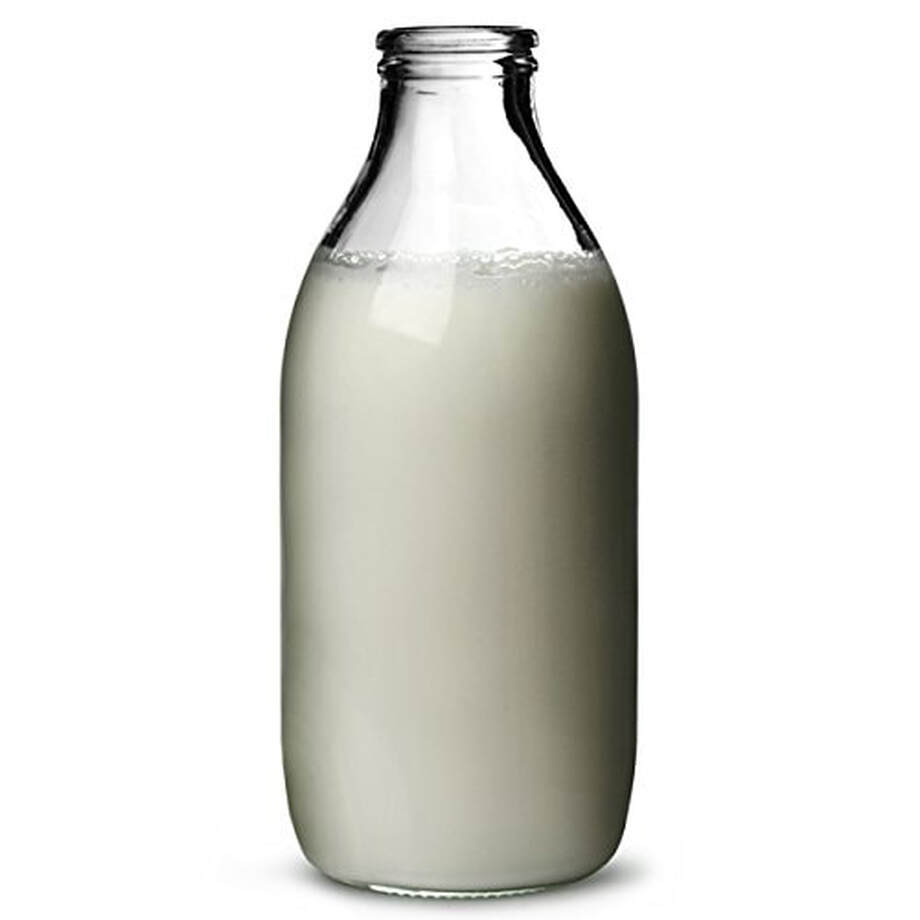Milk and The Future
This 2019 Survey Carried Out By
Mintel
Might Surprise You
I was really interested in this press release. Milk along with organic chicken is one of two things standing between me and having a meat free diet. (and it's probably the only chance I'll ever get to have Benny Hill on the cover of Phacemag)
I always insist on organic milk, my reasoning is that at least the cows have had a relatively free out doors life for a while, but I am just losing faith in any kind of animal industry that relies on profit.
Personally when I do make the decision to cut out milk I will use the same approach as I did when I stopped smoking.
Just stop, black tea, black coffee because I've tried a lot of substitutes and I just don't see the point.
What about you? - I did look for bias either way but as far as I can see this does represent our view of milk. Now Ernie has more than one rival! - Best pp x
I always insist on organic milk, my reasoning is that at least the cows have had a relatively free out doors life for a while, but I am just losing faith in any kind of animal industry that relies on profit.
Personally when I do make the decision to cut out milk I will use the same approach as I did when I stopped smoking.
Just stop, black tea, black coffee because I've tried a lot of substitutes and I just don't see the point.
What about you? - I did look for bias either way but as far as I can see this does represent our view of milk. Now Ernie has more than one rival! - Best pp x
'Milking the Vegan Trend'
From almond to oat and coconut to pea, plant-based milk alternatives are causing something of a stir, as latest research from Mintel reveals Brits are branching out in their milk tastes. Almost a quarter (23%) of Brits used plant-based milk alternatives in the three months to February 2019, up from just 19% in 2018.
Driving the plant-based revolution, some 26% of women enjoy plant-based milk alternatives and as many as a third (33%) of 16-24s opt for these varieties. Growth of milk alternatives is largely fuelled by more recent category entrants such as oat (volume sales of which grew 71% between 2017), coconut (up 16% between 2017-18) and almond variants (up 10% between 2017-18), all of which have grown in visibility as well as availability in 2018.
But while plant-based milk alternatives continue to grow in popularity, according to Mintel research, they accounted for just 4% of volume sales and 8% of value sales of white milk in 2018. Furthermore, their use in cooking and hot drinks remains limited. Only 25% of plant-based milk alternatives consumers use these products in cooking, compared to 42% for standard cow’s milk users. The difference is even wider with hot drinks, where just 42% of plant-based milk alternatives consumers use them in hot drinks, compared to 82% for standard cow’s milk users. Nevertheless, a fifth (21%) of Brits believe nut milks add more flavour to drinks than cow’s milk.
Highlighting that there are more opportunities for further growth in the plant-based milk alternatives trend, 65% of plant-based milk users would welcome advice on how to use plant-based milk/cream alternatives in cooking/baking - with 24% of non-users also interested in such advice.
Driving the plant-based revolution, some 26% of women enjoy plant-based milk alternatives and as many as a third (33%) of 16-24s opt for these varieties. Growth of milk alternatives is largely fuelled by more recent category entrants such as oat (volume sales of which grew 71% between 2017), coconut (up 16% between 2017-18) and almond variants (up 10% between 2017-18), all of which have grown in visibility as well as availability in 2018.
But while plant-based milk alternatives continue to grow in popularity, according to Mintel research, they accounted for just 4% of volume sales and 8% of value sales of white milk in 2018. Furthermore, their use in cooking and hot drinks remains limited. Only 25% of plant-based milk alternatives consumers use these products in cooking, compared to 42% for standard cow’s milk users. The difference is even wider with hot drinks, where just 42% of plant-based milk alternatives consumers use them in hot drinks, compared to 82% for standard cow’s milk users. Nevertheless, a fifth (21%) of Brits believe nut milks add more flavour to drinks than cow’s milk.
Highlighting that there are more opportunities for further growth in the plant-based milk alternatives trend, 65% of plant-based milk users would welcome advice on how to use plant-based milk/cream alternatives in cooking/baking - with 24% of non-users also interested in such advice.
“Plant-based milk alternatives continue to make further inroads into the mainstream, with high levels of innovation activity such as the entrance of Innocent Drinks to the market in 2018. Growth in this segment forms part of a much wider plant-based movement, driven by concerns around health, ethics and the environment, as well as by consumers’ love of variety in their diets.
The shift towards the higher-priced plant-based alternatives will carry on, helping to add value to the market overall. Consumer interest in advice on how these alternatives suit different usage occasions signals marked potential to boost usage among current users and non-users alike.”: Emma Clifford, Associate Director of UK Food and Drink
Driving the Plant-Based Revolution?
Driving the plant-based revolution, some 26% of women enjoy plant-based milk alternatives and as many as a third (33%) of 16-24s opt for these varieties. Growth of milk alternatives is largely fuelled by more recent category entrants such as oat (volume sales of which grew 71% between 2017), coconut (up 16% between 2017-18) and almond variants (up 10% between 2017-18), all of which have grown in visibility as well as availability in 2018.
But while plant-based milk alternatives continue to grow in popularity, according to Mintel research, they accounted for just 4% of volume sales and 8% of value sales of white milk in 2018. Furthermore, their use in cooking and hot drinks remains limited. Only 25% of plant-based milk alternatives consumers use these products in cooking, compared to 42% for standard cow’s milk users. The difference is even wider with hot drinks, where just 42% of plant-based milk alternatives consumers use them in hot drinks, compared to 82% for standard cow’s milk users. Nevertheless, a fifth (21%) of Brits believe nut milks add more flavour to drinks than cow’s milk.
Highlighting that there are more opportunities for further growth in the plant-based milk alternatives trend, 65% of plant-based milk users would welcome advice on how to use plant-based milk/cream alternatives in cooking/baking - with 24% of non-users also interested in such advice.
But while plant-based milk alternatives continue to grow in popularity, according to Mintel research, they accounted for just 4% of volume sales and 8% of value sales of white milk in 2018. Furthermore, their use in cooking and hot drinks remains limited. Only 25% of plant-based milk alternatives consumers use these products in cooking, compared to 42% for standard cow’s milk users. The difference is even wider with hot drinks, where just 42% of plant-based milk alternatives consumers use them in hot drinks, compared to 82% for standard cow’s milk users. Nevertheless, a fifth (21%) of Brits believe nut milks add more flavour to drinks than cow’s milk.
Highlighting that there are more opportunities for further growth in the plant-based milk alternatives trend, 65% of plant-based milk users would welcome advice on how to use plant-based milk/cream alternatives in cooking/baking - with 24% of non-users also interested in such advice.
“With volume sales of cow’s milk already on a downward trend, the fact that more young consumers are turning away from these products does not bode well for this segment’s prospects in the long-term. Efforts from the industry to remind young consumers of the benefits of using cow’s milk, and dairy more widely, for example in terms of health, are needed.” : Emma Clifford
16-24s Lose Taste for Standard Cow’s Milk
Traditionally a household staple, usage of standard cow’s milk is sliding among 16-24-year-olds, falling from 79% in 2018 to 73% in 2019. While cow’s milk still accounted for the vast majority of white milk sales in 2018 (96%), usage of this family favourite is increasingly skewed towards older consumers, peaking at 92% among over-45s.
This fall in usage among 16-24s comes as 37% of this age group say they have reduced how much standard cow’s milk they have used in the last 12 months for health reasons. Environmental concerns are also playing a role, with 16-24s most likely (36%) to agree that dairy farming has a negative impact on the environment. The significantly lower usage of cow’s milk among the younger generation is also in line with these consumers being most likely to report dairy avoidance in their household, at 26% of under-35s.
This fall in usage among 16-24s comes as 37% of this age group say they have reduced how much standard cow’s milk they have used in the last 12 months for health reasons. Environmental concerns are also playing a role, with 16-24s most likely (36%) to agree that dairy farming has a negative impact on the environment. The significantly lower usage of cow’s milk among the younger generation is also in line with these consumers being most likely to report dairy avoidance in their household, at 26% of under-35s.
The Ethical Milk Drinker
Mintel research highlights the importance of ethics and the environment for the milk and dairy industry as a third (33%) of milk, milk drinks and cream users are interested in products in a bottle/pot made wholly/partly of recycled plastics. Meanwhile, a quarter (27%) of users are interested in products with a guarantee of sustainable farming. Around one in seven (15%) users would be interested in products with an on-pack statement of how many days the animals spent outside.
“Media coverage of the ethical and environmental issues around animal farming have helped raise consumer awareness of these factors. Ethical interest is of significant importance to the dairy drinks, milk and cream sector, particularly as in this market differentiation is challenging. Interest in ethical products - including those that use recycled plastics, plastic waste reduction, sustainable farming, and support animal welfare - offers opportunities to engage with consumers, create compelling points of difference and encourage people to spend a bit more money.” : Emma Clifford
40% Of Users Would Pay More Than £1.20 for a 4-pinter
Finally, as many as 40% of standard white cow’s milk users would pay more than £1.20 for a four-pint bottle of milk, up from 35% in 2018. The price for a four-pint bottle of standard own-label milk stood at around £1.10 in April 2019, the same as in March 2018.
“This attitude aligns closely with our research which shows that 44% of people say small price rises in milk do not matter and reflect milk’s relatively small role in the overall grocery budgets.” Concludes Emma.
“This attitude aligns closely with our research which shows that 44% of people say small price rises in milk do not matter and reflect milk’s relatively small role in the overall grocery budgets.” Concludes Emma.
About Mintel
Mintel is the world's leading market intelligence agency. For over 40 years, Mintel's expert analysis of the highest quality data and market research has directly impacted on client success. With offices in London, Chicago, Shanghai, Belfast, Düsseldorf, Kuala Lumpur, Mumbai, Munich, New York, São Paulo, Seoul, Singapore, Sydney, Tokyo, and Toronto, Mintel has forged a unique reputation as a world-renowned business brand. For more information on Mintel, please visit www.mintel.com.
Research for Mintel's Added Value in Dairy Drinks, Milk and Cream UK 2019 Report was carried out among 2,000 internet users aged 16+ in February 2019.
share


